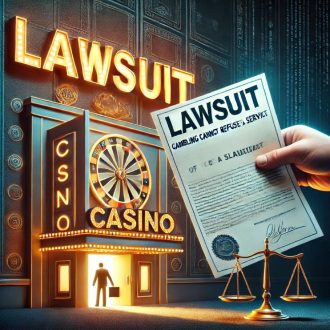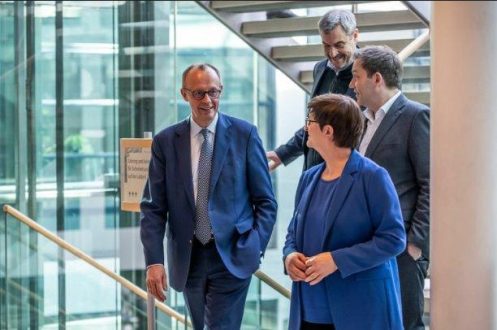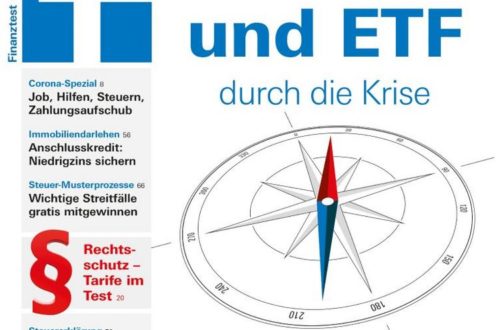7 Tips for Manufacturers and Operators
The Machinery Regulation (EU) 2023/1230 creates a uniform set of rules for machine safety in Europe. This EU harmonisation legislation replaces the previous Machinery Directive 2006/42/EC. The requirements of the new regulation apply not only to traditional machinery, but also to software components with safety functions and to substantial modified machinery. TÜV SÜD has summarized the seven most important points and explains how affected economic actors can prepare for the changes.
1. Expand risk assessment: The Machinery Regulation requires the precise assessment of potential hazards and comprehensive documentation of protective measures. In the future, this will apply not only to functional safety, but also to cybersecurity. Therefore, a comprehensive risk assessment is necessary that also covers new aspects such of cybersecurity, artificial intelligence, and digital operating instructions.
2. Strengthen cybersecurity: To minimize security risks from cyberattacks, threats must be assessed accordingly. Software, firmware, and safety-related parts of control systems must be protected against being modified or manipulated in such a way that the safe functioning of the machines is impaired. Appropriate safety precautions must be implemented and documented.
3. Secure AI systems: Safety components and machines with self-evolving behaviour using machine learning approaches ensuring safety functions are considered to be products with a particular specific hazards (see Annex I Part A of the Machinery Regulation). Regardless of the existence and application of harmonized standards for AI use, a separate conformity assessment procedure must be carried out for such products, which includes independent testing by a notified body. Future requirements for the responsible use of AI should also be taken into account.
4. Substantial modifications: Anyone who makes a substantial modification to a machine can legally become the manufacturer and, in this case, bears full responsibility – this applies to changes in both hardware and software. Companies should also keep an eye on upcoming requirements for cybersecurity and artificial intelligence and take them into account when making updates.
5. Protect digital instructions: Instructions and declarations of conformity may be provided digitally, as long as the relevant requirements are met. Instructions always contain safety-critical information. They must therefore be protected against possible damage and unauthorized changes.
6. Check CE marking: In future, the CE marking of a machine will also require that the basic cybersecurity requirements are met. For this reason, CE processes and CE documentation should be reviewed and updated if necessary.
7. Proactive risk management: Sound and up-to-date knowledge of artificial intelligence and cybersecurity is necessary for the proper implementation of the Machinery Regulation. Companies should continuously train their teams and regularly update their training programs. This enables risks to be identified at an early stage and effective countermeasures to be developed and implemented.
The new Machinery Regulation is more than just a formal adaptation of the previous Machinery Directive. It attempts to take into account the dynamic developments in this area and calls for a much more comprehensive risk assessment that also includes threats from the use of artificial intelligence or cyber attacks.
TÜV SÜD is one of the world’s leading testing and certification companies in the field of machinery safety. Its experts have in-depth knowledge of national and international standards and the requirements of the European Machinery Regulation. TÜV SÜD Product Service GmbH is a notified body for most of the points of Annex I of the Machinery Regulation and has also developed processes and test procedures to enable it to test and certify new requirements in areas such as cybersecurity and AI, despite the lack of harmonized standards. This enables manufacturers to achieve CE conformity in accordance with the Machinery Regulation quickly, efficiently, and securely.
Further information on TÜV SÜD’s services in this area is available at tuvsud.com/en/machineryregulation.
Founded in 1866 as a steam boiler inspection association, the TÜV SÜD Group has evolved into a global enterprise. Around 30,000 employees work at over 1,000 locations in about 50 countries to continually improve technology, systems and expertise. They contribute significantly to making technical innovations such as Industry 4.0, autonomous driving and renewable energy safe and reliable. tuvsud.com
TÜV SÜD Customer Engagement and People GmbH
Westendstraße 199
80686 München
Telefon: +49 (89) 5791-0
Telefax: +49 (89) 5791-1551
http://www.tuvsud.com/de
Unternehmenskommunikation INDUSTRIE
Telefon: +49 (89) 5791-2372
Fax: +49 (89) 5791-2269
E-Mail: thomas.oberst@tuev-sued.de
![]()




